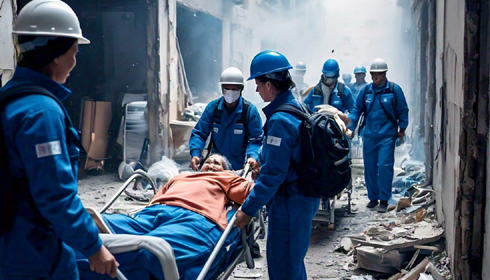
Global Health at Risk as Aid Cuts Strain Systems Worldwide: WHO
Recent funding cuts to global health have triggered widespread disruptions across health systems worldwide, according to the World Health Organisation (WHO). A new internal WHO review, which collected feedback from over 100 countries, reveals that nearly 75% of these countries are experiencing major service disruptions. One in four countries has seen health facility closures, while others report medicine shortages, rising healthcare costs, job losses among frontline workers, and systemic breakdowns.
The situation is especially dire in low- and middle-income countries (LMICs), many of which have long relied on international aid. With donors pulling back or redirecting funds, governments are scrambling to respond. WHO Director-General, Dr. Tedros Adhanom Ghebreyesus, shared the findings at a recent media briefing, emphasising the urgency of action. “These sudden and unplanned cuts are having serious consequences,” he said, “and WHO is helping countries to accelerate their transition to sustainable financing.”
Some governments are already responding by increasing domestic health funding. South Africa, for instance, has added US$1.5 billion to its health budget for 2024–25. Nigeria is channelling an extra US$200 million into its 2025 health allocation. Kenya has requested US$250 million more from its national treasury, while Ghana is also revising its health spending to close its funding gap.
WHO is offering technical guidance and strategic support to help countries navigate this fiscal squeeze. The organisation urges nations to protect the poor from rising out-of-pocket costs and avoid shutting down essential health services.
"Health system efficiency must be a priority," said Dr Rüdiger Krech, WHO Director of Health Promotion, in a recent WHO policy brief. "We recommend countries reduce administrative overhead, improve procurement strategies, and invest in technologies that give the highest return in health outcomes."
To reduce reliance on external aid, countries are exploring new ways to raise funds. One popular approach is taxing health-harming products such as tobacco, alcohol, and sugary drinks. Evidence suggests such taxes work: in the Philippines, for instance, the "Sin Tax" on tobacco and alcohol raised US$3.9 billion in 2022 alone, funding universal health coverage expansion and reducing consumption.
Similarly, South Africa’s sugar-sweetened beverage tax, introduced in 2018, led to a 29% drop in sugary drink consumption within one year, according to a 2021 study published in The Lancet Global Health.
WHO also recommends that countries develop social and community-based health insurance schemes. These models, which involve small, pooled contributions from individuals or families, have been effective in countries like Rwanda and Thailand. But challenges remain. Nations with weak tax systems or large informal economies may struggle to collect and manage such funds.
In such cases, WHO advises countries to seek concessional loans from development banks like the World Bank or African Development Bank. These loans offer lower interest rates and longer repayment periods, making them viable options for crisis response and infrastructure building.
The WHO’s report offers a sobering view of the fragility of global health systems when donor commitments falter. It also underscores a deeper truth: that sustainable, equitable healthcare must be rooted in domestic priorities and financing. The shift from aid to self-reliance isn’t merely a budgetary adjustment—it’s a political and moral imperative.
While fiscal responsibility is essential, global health should not become the first casualty of budget rebalancing. The WHO’s call to prioritise the vulnerable and preserve essential services is not merely a technical guideline—it’s a moral imperative. Policymakers must recognise that investing in health is not a cost but a foundation for long-term economic resilience. However, bridging the gap between international advocacy and domestic political will remains a challenge. For the world’s poorest, the stakes are not abstract—they are a matter of life and death.